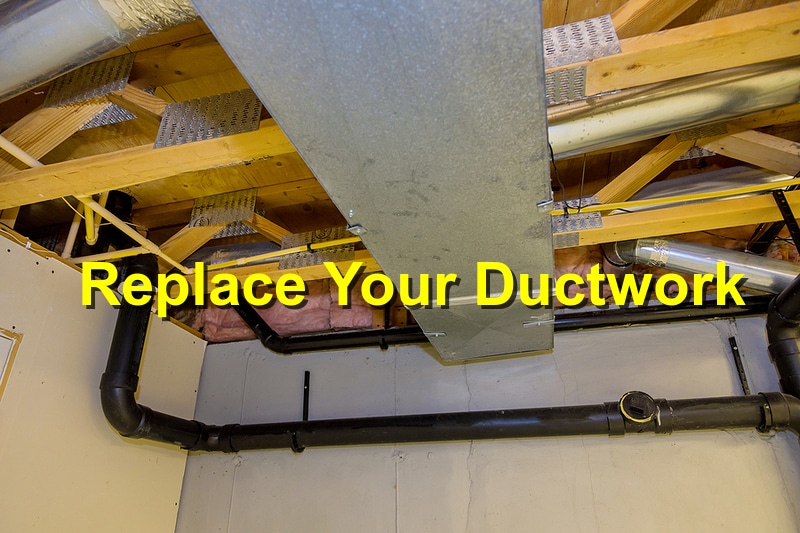Your home’s HVAC ductwork plays a critical role in maintaining the comfort and health of your indoor environment. You see, the ductwork is responsible for distributing conditioned air throughout your home, regulating temperature and humidity levels, and filtering out airborne pollutants. Over time, however, ductwork can become damaged or clogged with dirt, debris, and other contaminants, which can impair its performance and negatively impact indoor air quality.
In case you are wondering, replacing HVAC ductwork is important for several reasons. First and foremost, it helps to ensure that your HVAC system is functioning at peak efficiency. Damaged or clogged ductwork can restrict airflow, causing your system to work harder than necessary to heat or cool your home. This not only increases your energy bills but also puts unnecessary strain on your HVAC equipment, which can shorten its lifespan and lead to costly repairs.
Replacing ductwork also has significant benefits for indoor air quality. As air circulates through your ductwork, it can pick up dirt, dust, and other contaminants that can trigger allergies, asthma, and other respiratory problems. Replacing old, damaged, or clogged ductwork helps to ensure that the air circulating in your home is clean and healthy, which can help to improve your overall well-being.
In addition to improving HVAC system efficiency and indoor air quality, replacing ductwork can also increase the value of your home. New ductwork is a significant selling point for potential homebuyers, who are often willing to pay a premium for homes with modern, efficient HVAC systems.
Why Homeowners Should Leave the Job to Trained and Qualified Professionals
As much as it is important to have your ductwork in excellent shape, replacing an existing one is a complex and labor-intensive task that requires specialized knowledge and skills. There are several reasons why homeowners should not attempt to replace their ductwork themselves, including:
- Safety risks: Ductwork replacement involves working with sharp tools and heavy materials, and it often requires climbing ladders and working in tight spaces. Without the proper training and equipment, homeowners may be at risk of injuring themselves or damaging their home. In short, a homeowner may end spend more money in the long-run under the guise of saving a few dollars by attempting to do the work by themselves.
- Code compliance: Ductwork replacement must comply with local building codes, which vary by location and or state. Failure to comply with these codes can result in fines, legal problems, and safety hazards.
- Efficiency and effectiveness: Properly installed ductwork is essential for efficient and effective HVAC system performance. Incorrectly installed ductwork can result in reduced airflow, energy waste, and decreased indoor air quality.
- Cost: While it may seem like a money-saving opportunity to replace ductwork yourself, the cost of purchasing the necessary equipment and materials, as well as the potential cost of fixing mistakes or damage caused during the installation process, can quickly add up.
- Time constraints: Replacing ductwork is without a doubt an extremely time-intensive undertaking. Not many homeowners, particularly those who live in affluent neighborhoods have the luxury of free time to oversee such a complex, involving, and time-consuming DIY project.
For these reasons, it is strongly recommended that homeowners hire a professional HVAC contractor to replace their ductwork. These professionals have the knowledge, skills, and equipment needed to ensure that the job is done safely, efficiently, and effectively, and in compliance with local building codes.
References: ACheating, AlliedExperts

